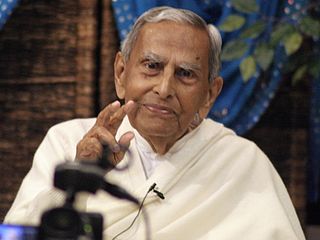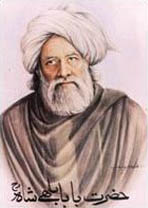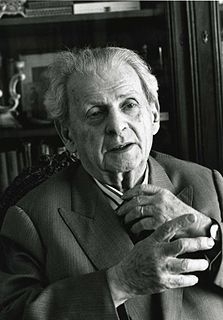A Quote by Dada Vaswani
The one who turns his back on the world and its comforts and, sets out on the path that leads to the Beloved has to face countless difficulties. But he brakes them all for the sake of the Beloved.
Related Quotes
The curt truth is that, in a deep secret way, the state of being beloved is intolerable to many. The beloved fears and hates the lover, and with the best of reasons. For the lover is forever trying to strip bare his beloved. The lover craves any possible relation with the beloved, even if this experience can cause him only pain.
Our entire case as members of The Church of Jesus Christ of Latter-day Saints rests on the validity of this glorious First Vision. ... Nothing on which we base our doctrine, nothing we teach, nothing we live by is of greater importance than this initial declaration. I submit that if Joseph Smith talked with God the Father and His Beloved Son, then all else of which he spoke is true. This is the hinge on which turns the gate that leads to the path of salvation and eternal life.
Love remains a relation with the Other that turns into need, transcendent exteriority of the other, of the beloved. But love goes beyond the beloved... The possibility of the Other appearing as an object of a need while retaining his alterity, or again,the possibility of enjoying the Other... this simultaneity of need and desire, or concupiscence and transcendence,... constitutes the originality of the erotic which, in this sense, is the equivocal par excellence.
I understood how a man who has nothing left in this world may still know bliss, be it only for a brief moment, in the contemplation of his beloved. In a position of utter desolation, when a man cannot express himself in positive action, when his only achievement may consist in enduring his sufferings in the right way - an honorable way - in such a position man can, through loving contemplation of the image he carries of his beloved, achieve fulfillment.
Pleasure and pain at once register upon the lover, inasmuch as the desirability of the love object derives, in part, from its lack. To whom is it lacking? To the lover. If we follow the trajectory of eros we consistently find it tracing out this same route: it moves out from the lover toward the beloved, then ricochets back to the lover himself and the hole in him, unnoticed before. Who is the subject of most love poems? Not the beloved. It is that hole.



































